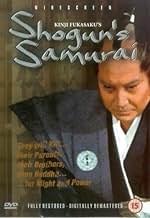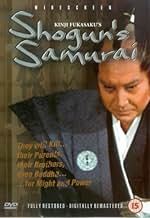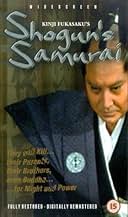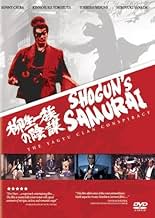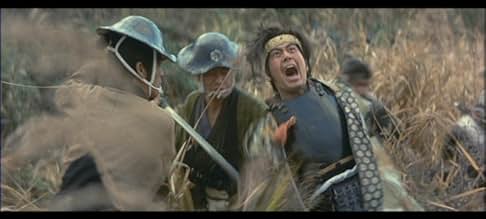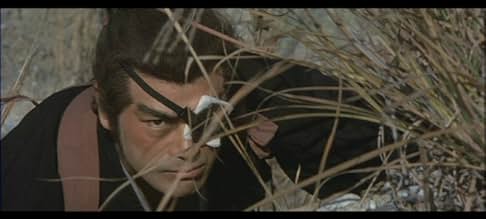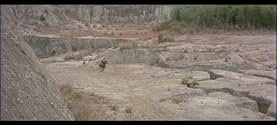Director Kinji Fukasaku is perhaps best known, in his homeland at least, for his Japanese gangster films, a series with which this movie shares a number of characteristics. Violence and political intrigue are themes throughout both Shogun's Samurai and Battles Without Honor and Humanity, and both feature a lead character who finds his loyalties challenged by betrayals. Both films also feature a large number of characters who seem to have little purpose but to die, and since so little is done to develop them, their deaths have little impact when they do come. This film has other flaws as well. The makeup, costumes and sound design are distractingly poor, and the battle scenes were substandard as well, inferior to other samurai films of earlier years (Seven Samurai comes to mind).
Sonny Chiba plays the Sonny Chiba character in Shogun's Samurai, the no-nonsense master swordsman who strides through the film, scowling menacingly. What a guy; he even gets to wear an eye patch. If you were expecting to see the legendary Toshiro Mifune, you may be disappointed; his appearance amounts to little more than a cameo, and just when it appears that his character might do something interesting, he disappears for good.
Overall, the strengths of the film are its story, which is infinitely more comprehensible than those gangster films, and the challenges posed to traditional concepts of good and evil. Two brothers are challenging for the throne of their recently departed father, who may have had some help on his way out. Early on, it looks as if we will be faced with a couple of characters who couldn't be more clearly good and evil; after all, the older brother stammers and has a birthmark, the sure sign of a villain. Eventually, however, it becomes clear that in a winner-takes-all struggle for power, there are no heroes and villains, only winners and losers.

